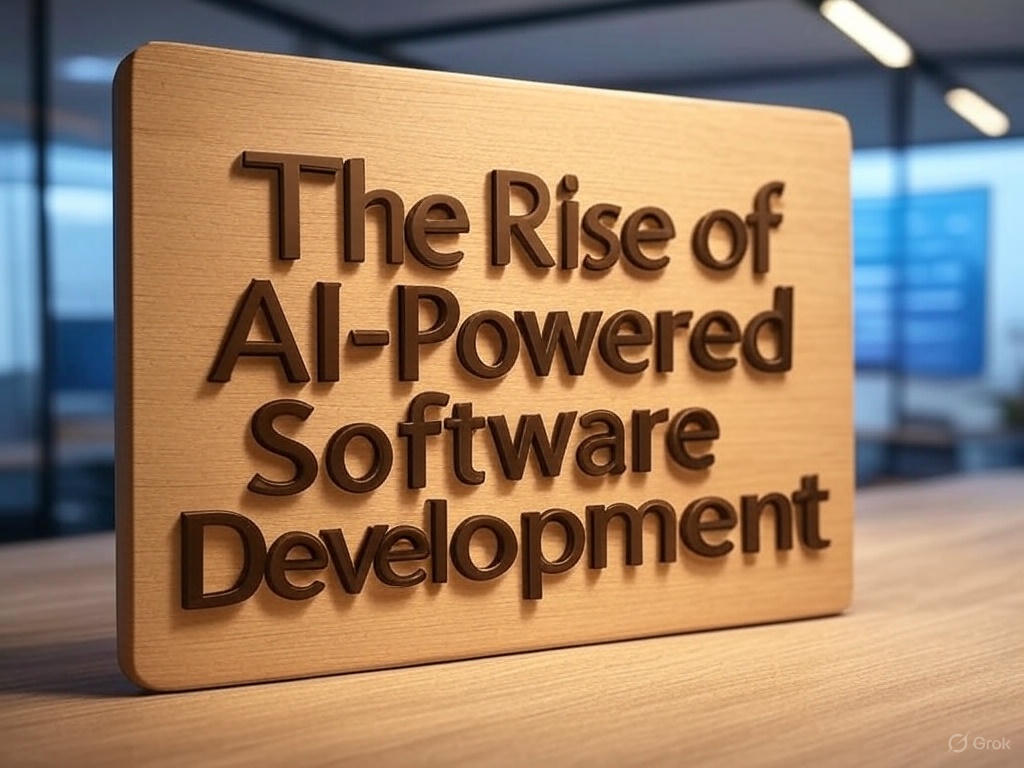In an era where time is money and information is the new currency, marketing automation has evolved from a groundbreaking idea to a linchpin in the strategy of successful businesses. With 2024 well underway, the promises of personalized customer journeys, consistent brand experiences, and the maximization of resources through automation have never been more within reach. Aimed at marketing professionals and small business owners, this in-depth blog post will explore the myriad ways marketing automation can supercharge your marketing efforts this year and beyond.
Image source: pexels.com
The Evolution of Marketing Automation
The very concept of marketing automation has undergone a remarkable evolution. It’s not only about streamlining repetitive tasks or scheduling emails. In 2024, we’re witnessing a transformation where AI and machine learning inject unprecedented levels of sophistication into the way brands communicate.
From Email Blasts to Empathetic Engagement
Gone are the days of generic email blasts. Today, marketing automation platforms can dynamically tailor content based on a recipient’s behavior, preferences, and stage in the buying cycle. We see companies like Amazon delight customers with personalized recommendations, a feat only possible through advanced data entry automation.
Intelligent Automation Redefining Segmentation
Marketing segmentation is no longer a manual, rule-based process. AI-driven analytics now allow for micro-segmentation, identifying nuanced customer traits and behaviors with precision. Such capabilities enable businesses to craft hyper-targeted messages and offers, increasing conversion rates and customer satisfaction.
The Rise of Omnichannel Experiences
True omnichannel marketing is complex, requiring seamless integration across various platforms and devices. In 2024, automation tools are bridging these gaps, ensuring that the right message reaches the customer regardless of the channel. Starbucks, for instance, offers a consistent experience whether ordering via app, website, or in-store, all thanks to automation.
Unleashing the Potential of Customer Data
At the heart of marketing automation lies customer data—its collection, analysis, and actionable use. The volume of data available to businesses has surged, and in 2024, it’s not about the quantity but the quality and utilization of this data that will set you apart.
Harnessing Big Data for Personalized Campaigns
Big data technology within automation platforms is revolutionizing the way we approach marketing. It’s about turning vast amounts of behavioral and transactional data into insights that fuel highly personalized campaigns. Nike’s app uses customer activity and purchase data to deliver content and promotions curated for individual users.
Building A Unified Customer Profile
A key advantage of marketing automation is the ability to amalgamate data from various sources and touchpoints into a single customer view. This unified profile is the holy grail, facilitating a holistic understanding of each customer’s unique journey and preferences. A unified view enables businesses to nurture leads more effectively and creates experiences that resonate on a personal level.
Predictive Analytics and Anticipating Customer Needs
Predictive analytics tools are now more accessible and powerful. By leveraging machine learning, businesses can forecast customer behaviors and tailor marketing strategies to actively meet their needs at just the right time. The Weather Channel’s use of AI to predict and activate digital marketing campaigns based on weather forecasts is a perfect example of this in action.
Streamlining Customer Journeys with Automation
Today’s consumers are diverse and expect highly responsive and personalized experiences. Marketing automation is facilitating the delivery of such experiences by seamlessly guiding customers through their buying journeys.
Aligning Content with the Buyer’s Journey
Understanding the buyer’s journey is paramount. Automation platforms facilitate content alignment at every stage, enhancing engagement and paving the road to purchase. This means serving educational content to prospects, providing case studies for those considering a purchase, and delivering post-purchase support materials, all automatically tailored to their progression.
Nurturing Leads and Driving Conversions
Lead nurturing is a delicate dance that requires the right message at the right time. Automation excels here, ensuring that leads are not only followed up with promptly but are also engaged with through a series of tailored communications until they are ready to convert. Financial services company Mint effectively uses AI solutions to guide its users towards achieving their financial goals through a series of encouraging and informative emails.
Post-Purchase Engagement and Advocacy
Marketing doesn’t end at the purchase. Automation continues to add value post-purchase, fostering customer loyalty, generating referrals, and driving advocacy. By rewarding loyal customers with exclusive offers or by soliciting feedback in a structured manner, businesses can leverage automation to maintain and grow customer relationships.
Enhancing Lead Generation and Qualification
Lead generation has been an area of consistent innovation. In 2024, automation has tightened its focus, driving higher quality leads and more efficient sales pipelines.
Intelligent Lead Scoring Systems
Gone are the arbitrary lead scoring models. AI-driven lead scoring now takes into account complex factors and behaviors, providing sales teams with better insights on the readiness and interest level of prospects. Organizations integrate a myriad of data points — from website visits to email interactions — to score leads, ensuring that sales can focus on the most promising opportunities.
Cross-Channel Lead Capture and Engagement
Marketing automation platforms excel at capturing leads across diverse channels, ensuring a consistent, branded response. Tools such as chatbots, webinars, and social media integrations provide multiple touchpoints for lead capture and engagement, making the customer acquisition process more robust and comprehensive.
Optimize Marketing and Sales Alignment
Alignment between marketing and sales has historically been a challenge. In 2024, automation is playing a pivotal role in this regard, with platforms offering shared visibility into the customer pipeline. By tracking engagement and interactions in real-time, marketing can ensure that sales are equipped with the most current and relevant information to close deals effectively.
The Role of AI in Marketing Automation
Artificial intelligence has graduated from being a buzzword to an integral part of the marketing automation landscape. When wielded correctly, AI can augment the capabilities of marketing teams to unprecedented heights.
Personalization at Scale
AI enables personalization at a scale previously unimaginable. It does not simply offer the right product but tailors the entire shopping experience to the individual. This level of personalization fosters customer loyalty and sets brands apart in a crowded marketplace.
Real-Time Decision Making
With AI’s power, marketing decisions are no longer solely based on historical data. Real-time analysis of customer behavior allows for adaptive marketing strategies that can respond to rapidly changing market conditions and consumer preferences with agility and precision.
Conversational AI and Customer Service
The rise of conversational AI, in the form of chatbots and virtual assistants, is reshaping the customer service arena. These tools provide instant responses, 24/7 availability, and can handle a multitude of customer service tasks, freeing human resources for more complex issues.
Implementing Marketing Automation Effectively
The road to successful marketing automation is paved with careful planning, effective implementation, and continuous optimization. Organizations must adopt a strategic approach to maximize the benefits of their automation initiatives.
Establish Clear Objectives and KPIs
Before implementing any new marketing automation tool, it’s crucial to establish clear objectives and key performance indicators (KPIs). Whether the goal is to increase lead generation, improve customer retention, or boost sales, having measurable outcomes in mind will guide the strategy and ensure a return on investment.
Ensure Data Quality and Integration
At the core of any automation strategy is data. Clean, integrated data is the lifeblood that fuels effective automation. Businesses must invest in systems that not only collect data but also ensure its accuracy and consistency across platforms.
Employee Training and Buy-In
The best tools are only useful if people know how to use them. Employee training and ongoing support are critical for the successful adoption of marketing automation. Furthermore, securing buy-in from all levels of the organization ensures that the cultural and operational shifts necessary for successful automation are embraced.
Test, Learn, and Refine
Marketing automation is not a set-it-and-forget-it solution. It requires constant monitoring, testing, and refinement. A culture of continuous improvement, where successes and failures are analyzed and used to inform future strategies, is key to staying ahead in the automated marketing game.
Avoiding Common Pitfalls in Marketing Automation
Despite its potential, marketing automation is not without its pitfalls. Businesses must be aware of these pitfalls and take proactive steps to avoid them.
Over-Automation and the Personal Touch
Automation is powerful, but it should complement human interaction, not replace it. Over-reliance on technology can lead to a sterile customer experience. Businesses must strike the right balance, using automation to augment their marketing efforts while preserving the personal touch that builds relationships.
Inadequate Strategy and Planning
A lack of clear strategy and planning can lead to haphazard automation, resulting in disjointed customer experiences and wasted resources. Every automation initiative should be rooted in a well-defined marketing strategy that aligns with broader business goals.
Failure to Integrate Across Departments
For automation to be truly effective, it must be integrated across all customer-facing departments, not just marketing. This includes sales, customer service, and product development. A siloed approach hampers the seamless customer experience that automation is designed to provide.
The Ethical Dimension of Automation
As with any tool, there is an ethical dimension to marketing automation. Businesses must consider the privacy and consent of their customers, ensuring that data is used in transparent and responsible ways.
Transparency in Data Use and Policies
Clear and accessible data use policies, including the use of cookies and tracking, are essential for building and maintaining customer trust. Businesses should be transparent about the data they collect, how it is used, and with whom it is shared.
Opt-in and Opt-out Mechanisms
Giving customers the ability to opt in or out of marketing communications is not just a legal requirement; it’s a matter of respect. Automation should facilitate easy opt-in and opt-out processes to ensure that customers have control over their communications.
Data Security and Privacy Regulations
With data breaches becoming more common, ensuring the security of customer data is paramount. Businesses must adhere to applicable data privacy regulations and implement robust security measures to protect customer information from unauthorized access.
Case Studies and Success Stories
To bring the concepts of marketing automation to life, we’ll explore several case studies and success stories from businesses that have fully embraced the power of automation.
Automotive Industry Leader Boosts Lead Quality
A major automotive corporation used marketing automation to refine its lead-generation process. By capturing and analyzing data on website visits, brochure requests, and test drives, the company developed a more accurate understanding of customer intent. This led to a 25% increase in lead-to-opportunity conversion rates and a 20% increase in sales from these qualified leads.
E-commerce Giant Improves Email Relevance
An e-commerce giant implemented AI-driven personalization within its email marketing campaigns. By analyzing customer browsing and purchasing history, the company saw a 30% increase in open rates and a 25% increase in click-through rates, demonstrating the power of relevant and timely email content.
Healthcare Provider Enhances Patient Journey
A leading healthcare provider used automation to improve the patient experience. By sending appointment reminders and follow-up messages, the provider experienced a reduction in no-show rates and an increase in patient satisfaction scores. The automated process saved staff time and ensured that patients received the care they needed when they needed it.
Looking Ahead: The Future of Marketing Automation
The future of marketing automation is one of continuous innovation and enhanced customer experiences. With technologies like AI, machine learning, and big data becoming more sophisticated, the possibilities for automation are limitless.
Hyper-Personalization and Predictive Marketing
We anticipate a future where marketing is not just personalized but hyper-personalized. Predictive analytics and AI will enable brands to not only respond to customer behaviors but anticipate them, delivering a level of service that feels almost prescient.
AI-Generated Creative Content
Content creation is often a bottleneck in the marketing process. With the advent of AI-generated creative content, we may see a shift towards automation tools that can craft compelling messages, design graphics, and even produce video content at scale.
The Ethical AI Marketer
The role of ethics in AI and automation is set to become more prominent. Businesses that strive to be ethical in their use of automation will likely gain a competitive edge. The ethical AI marketer will need to balance the benefits of automation with considerations of privacy, consent, and transparency.
The Takeaway
Marketing automation is no longer a luxury, but a necessity for businesses looking to stay competitive in 2024 and beyond. The benefits are clear: increased efficiency, enhanced customer experiences, and a better return on investment. By understanding the tools at your disposal, planning carefully, and approaching automation with an ethical mindset, you can unlock its full potential and take your marketing to the next level.
In a world that’s moving at the speed of technology, marketing automation is your key to future-proofing your business. Are you ready to take the plunge into the automated marketing landscape? The time is now, and the future is already at our doorstep.






